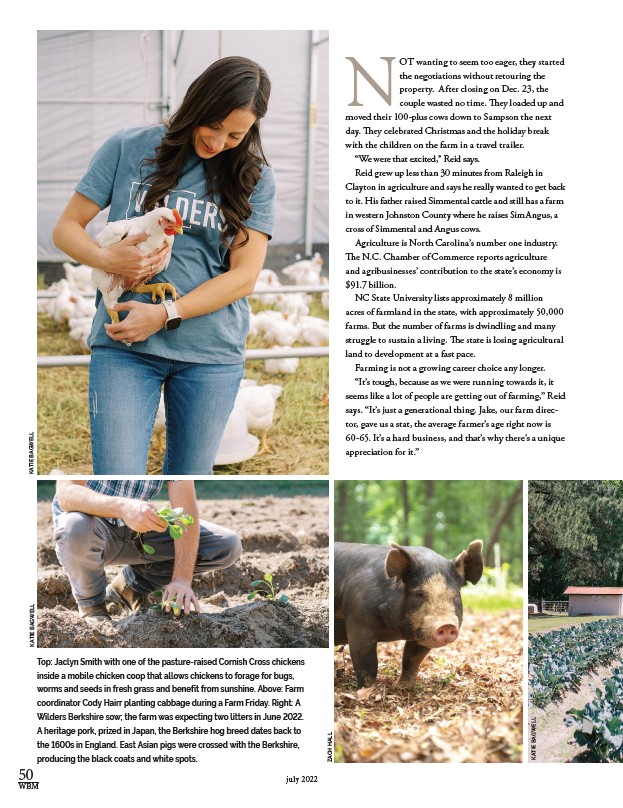
50 july 2022
WBM
NOT wanting to seem too eager, they started
the negotiations without retouring the
property. After closing on Dec. 23, the
couple wasted no time. They loaded up and
moved their 100-plus cows down to Sampson the next
day. They celebrated Christmas and the holiday break
with the children on the farm in a travel trailer.
“We were that excited,” Reid says.
Reid grew up less than 30 minutes from Raleigh in
Clayton in agriculture and says he really wanted to get back
to it. His father raised Simmental cattle and still has a farm
in western Johnston County where he raises SimAngus, a
cross of Simmental and Angus cows.
Agriculture is North Carolina’s number one industry.
The N.C. Chamber of Commerce reports agriculture
and agribusinesses’ contribution to the state’s economy is
$91.7 billion.
NC State University lists approximately 8 million
acres of farmland in the state, with approximately 50,000
farms. But the number of farms is dwindling and many
struggle to sustain a living. The state is losing agricultural
land to development at a fast pace.
Farming is not a growing career choice any longer.
“It’s tough, because as we were running towards it, it
seems like a lot of people are getting out of farming,” Reid
says. “It’s just a generational thing. Jake, our farm direc-tor,
gave us a stat, the average farmer’s age right now is
60-65. It’s a hard business, and that’s why there’s a unique
appreciation for it.”
Top: Jaclyn Smith with one of the pasture-raised Cornish Cross chickens
inside a mobile chicken coop that allows chickens to forage for bugs,
worms and seeds in fresh grass and benefit from sunshine. Above: Farm
coordinator Cody Hairr planting cabbage during a Farm Friday. Right: A
Wilders Berkshire sow; the farm was expecting two litters in June 2022.
A heritage pork, prized in Japan, the Berkshire hog breed dates back to
the 1600s in England. East Asian pigs were crossed with the Berkshire,
producing the black coats and white spots.
KATIE BAGWELL KATIE BAGWELL
ZACH HALL
KATIE BAGWELL